Mpho Makwana: We committed to this country that we would have a turnaround in energy availability and that by 31 March 2023 we would achieve specific measures in terms of contributing towards 60% energy availability. We then said that we would strive towards 31 March 2024, to have a 65% energy availability factor, and then 31 March 2025, 70%.
(At 70% energy availability, load shedding should not be needed. This chart shows the turnaround strategy.)
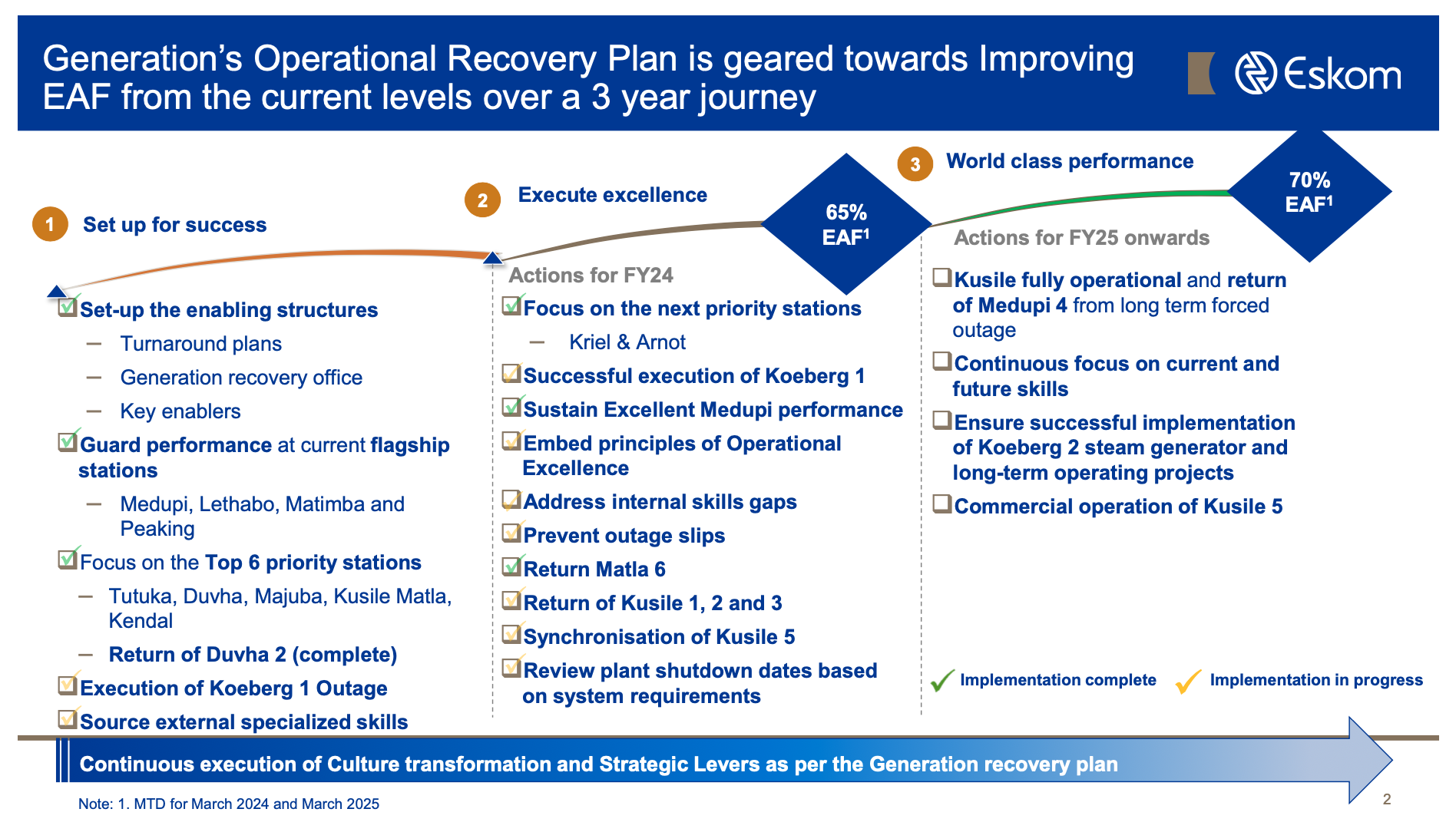 Source: Eskom Generation Recovery Plan / BLSA discussion / July 2023
Source: Eskom Generation Recovery Plan / BLSA discussion / July 2023
Question: What does that mean in our lives? Because at Stage 3 load shedding, power cuts don’t feel quite existential.
Answer: As you improve energy availability, so will the levels of load shedding come down. So, on days when we don’t load-shed, as it has now become a phenomenon, it is when we are already operating at 65% EAF [energy availability factor]. So, between 65% and 70%, load shedding becomes a non-issue.
Q: Is it now possible to see a future without load shedding?
A: It is possible.
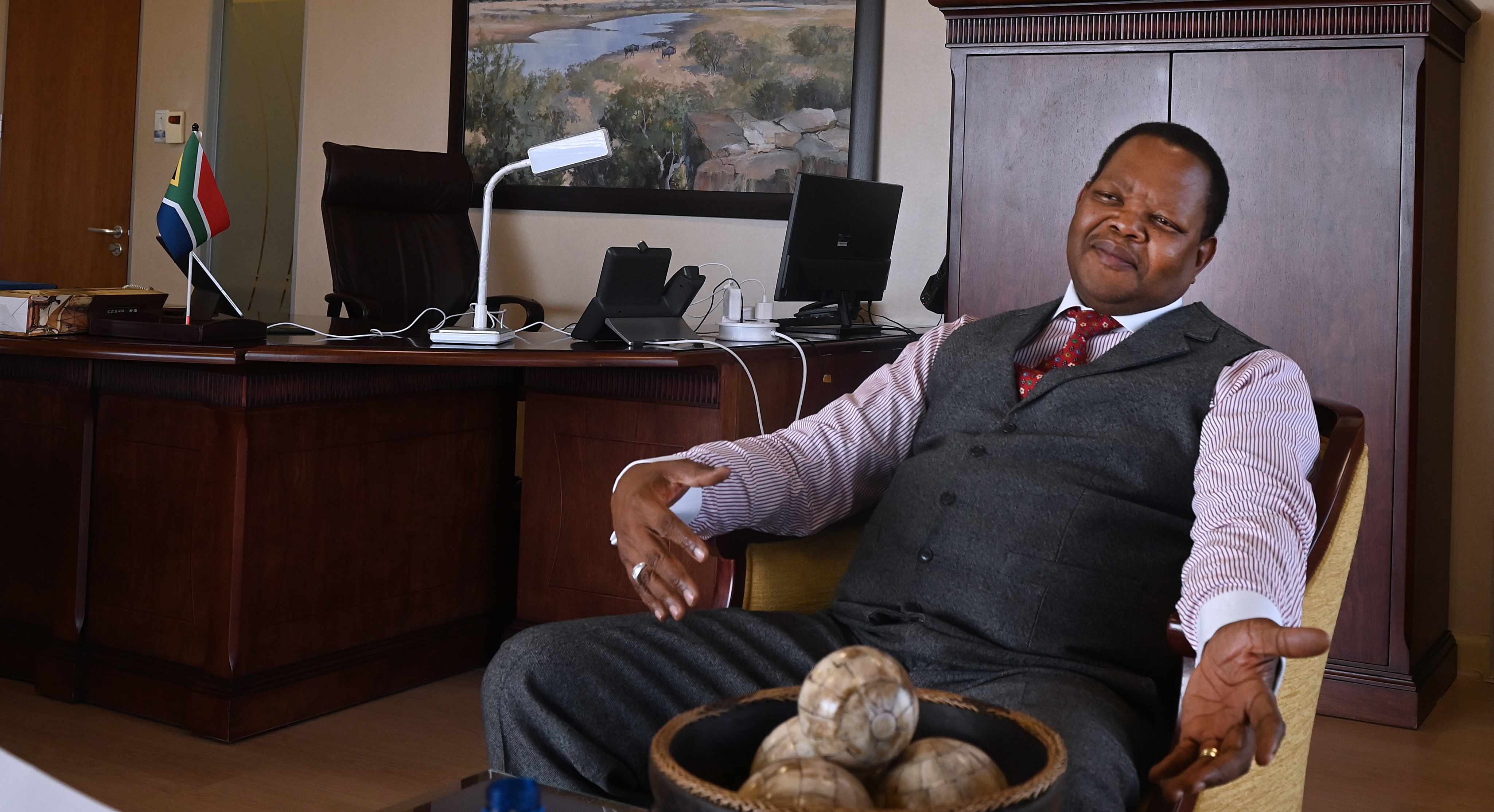 Eskom chair Mpho Makwana talks to Daily Maverick at Megawatt Park on 17 July 2023. (Photo: Leon Sadiki)
Eskom chair Mpho Makwana talks to Daily Maverick at Megawatt Park on 17 July 2023. (Photo: Leon Sadiki)
Q: How much of Eskom’s R30-billion budget for diesel (to fuel the emergency open-cycle gas turbines) for 2023 has already been spent? (In 2022 and 2023, Eskom burnt through diesel at such a rate that it had to ask Treasury for additional funds)
A: It’s not as huge a problem area as when we assumed office. I remember having a board meeting on 23 December (2022) when Eskom management told the country that we had run out of money for diesel. The investment and finance committee, led by Tryphosa Ramano, figured out some modelling that management could follow. First, we finished the financial year with adequate diesel supplies; from 1 April 2023 to 31 March 2024 we would have sufficient funding. There’s a prudent use of open-cycle gas turbines, which comforts us that we will not run out of diesel.
We may see provincially based grid development and local area-based grid development.
Q: The macro energy reforms are starting to work if you look at the number of independent power generation licensing approvals granted by Nersa. Is this exciting or anxiety-provoking for Eskom? The long-term picture is that you lose your monopoly.
A: Given that at the highest level in the country there’s a sense that we are in a crisis, our job, firstly, is to minimise this sense of angst that there is a crisis by stabilising the existing fleet. The opportunities outside of Eskom and in probable competition with Eskom are exciting for us as a board and for management. The prospect that soon we will have a national transmission company, once approved, that will then start creating a sense of fair play. It just means we get a breather because that’s what it should do. Eskom would get a break to do maintenance properly, do maintenance when it should, and restore some semblance of the excellence we had in 2001 when we were recognised as the global utility company of the year.
Q: How soon will it be before that national transmission company is up and running? (This is important because new energy transmission is critical to ending load shedding and an energy transition).
Read more in Daily Maverick:
How to beat load shedding at home... and other ideas
Eskom Intelligence Files
A: The timelines are a moving target because there is so much complexity. Our high-level timeline is to ensure that by quarter three, early quarter four (September to December) of this year, we have something in place regarding a board regarding precise management. But there are regulatory matters to resolve with (electricity regulator) Nersa; there are issues of lenders’ concerns that we must deal with. Remember, historically, when Eskom went out to do bonds and facilities, they were not separating, we were doing it as one, integrated entity. So now you must decouple the main balance sheet and have a transmission balance sheet on its own, an income statement on its own, and so because of that, these things are proving complicated and taking time.
Investment in new transmission lines and a new grid system will be a substantial, capital-intensive programme, as in hundreds of billions of rands.
Global trends now are that you concentrate on something other than national grids. You also focus on localised grids. Some people call them microgrids. So, we may see provincially based grid development and local area-based grid development.
‘It’s about repurposing’
Q: I was reading that Komati (power station) is well on its way with the transition. How have you managed considerations of workers and surrounding coal-mining communities in bringing them to the point of comfort to allow that transition to begin or continue, and then what’s next?
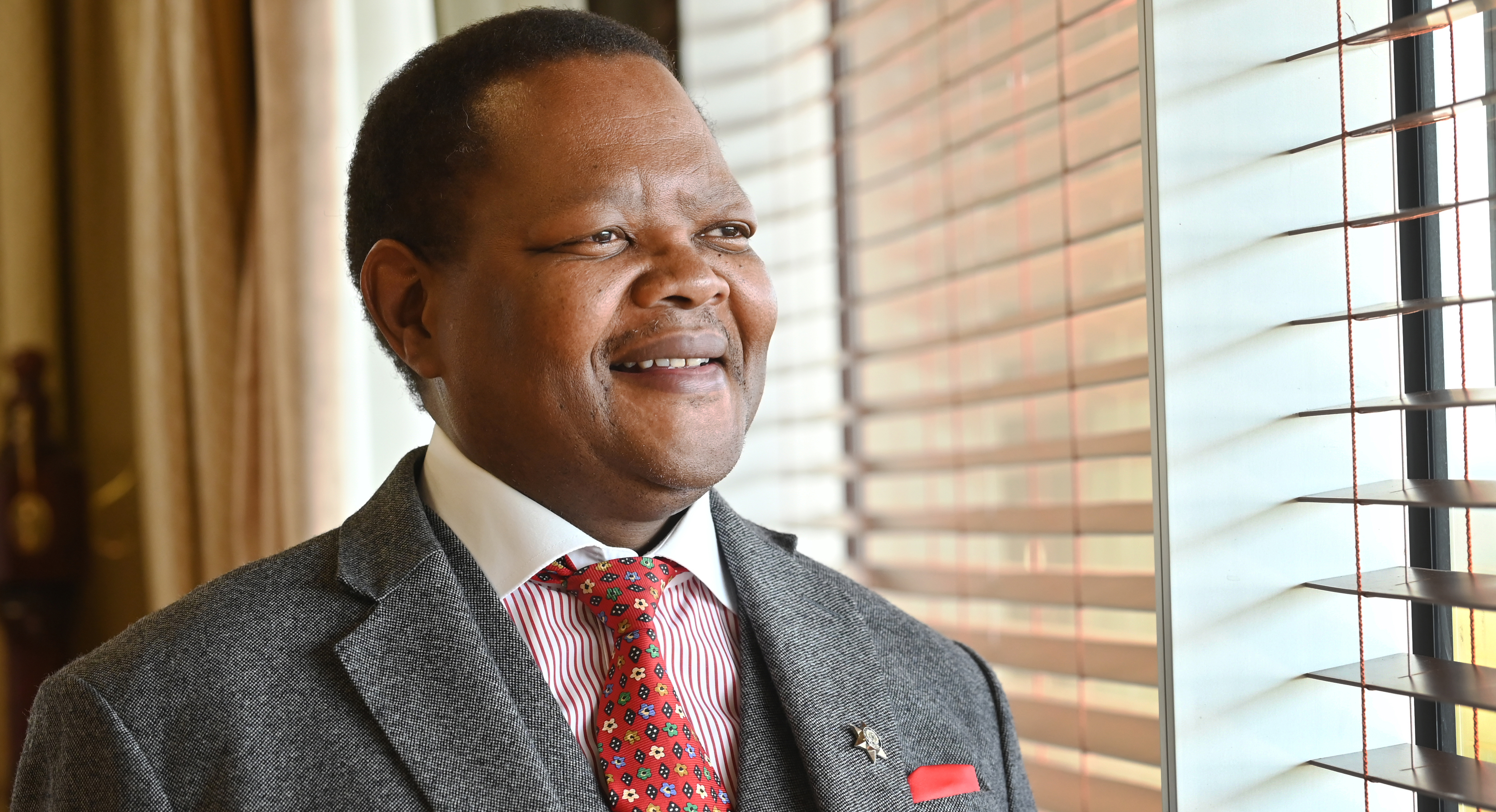 Mpho Makwana says we are emerging from an energy crisis. (Photo: Leon Sadiki)
Mpho Makwana says we are emerging from an energy crisis. (Photo: Leon Sadiki)
A: So, it’s an ongoing process. A week and a half ago, we accompanied the Presidential Climate Commission, who went on a fact-finding mission, and they found evidence of how Eskom had gone about the journey to date. There continue to be… discomforts from local businesses, from trade unions, but we sense that the journey should never be about shutdown; it’s about repurposing. Repurposing means you will ensure that (you replicate) this unit’s economic and socioeconomic footprint here. Renewable energy dictates that you get slightly [fewer] megawatts than you would be getting. We are finding that with cooling towers, you don’t have to demolish them. You put new technologies into the cooling tower that also uses wind to generate. So, a cooling tower can generate (say) 25 megawatts, so if there are eight of them, that’s the equivalent of 100MW, 150MW of electricity, and that’s significant. Overall, the just energy transition for Komati is going well, and it’s a global first, and there will be lots to learn before we can do the same with the other mature power stations.
Q: Many European delegations have funded some of the just energy transition investment plan (worth $8.5-billion) in town. Are they at a point of comfort with where we’re going, that there is progress, that it is continuing? Are you comfortable that that capital, be it in the form of concessional loans or grant financing, is safe? They had expressed concerns when (former Eskom CEO) André de Ruyter quit, and there was such an explosion of politics and concerns about Eskom’s direction.
The stream that deals with law enforcement has been doing well regarding the pace with which dockets are being produced for arrests. The clog-up is now regarding people appearing before the courts.
A: We must always remember that multilateral government commissions drive these agreements. So, even if I went to the World Bank today to try and sign something, I can’t do that without the participation of Treasury and other related entities because it’s a multilateral entity, so the exit of one individual can never (jeopardise such an agreement). I interact with the World Bank regularly to give them regular updates. (Acting CEO) Calib Cassim does the same. The other day we hosted the Bank of China executives, as China Grid is a significant partner to Eskom in various developments with which we are engaged.
Q: Are we still in an energy crisis, and when are you likely to make a CEO appointment?
A: We are emerging from a crisis because everything we are dealing with is complex. So, there’s always a tightrope to walk, ensuring that everything moves in tandem. You know, Eskom has an enormous system impact on the economy and society, whether you think of security, economic GDP impact, or daily lives. So, you can’t move like a single listed corporation on the JSE. So, that’s why we are emerging out of a crisis because the first crisis is to keep the lights on and reassure the country of the security of supply. Then the broader thing is how you open up the lines like we were talking about transmission.
The process of appointing the group chief executive is now at its most delicate phase. It’s long out of the board; it’s now in the shareholders phase (government) in terms of due diligence. The minister said in Parliament, if you remember when he did the budget vote, he said that we should be able to announce within a month.
Faustian pact?
Q: Has a Faustian pact been struck with the syndicates which have very clearly been identified in coal, fuel oil and general procurement to secure greater grid stability?
A: We haven’t signed a pact with anybody. The stream (of the team in charge of the energy action plan) that deals with law enforcement has been doing well regarding the pace with which dockets are being produced for arrests. The clog-up is now regarding people appearing before the courts.
Q: Very clearly, you had syndicates operating inside and outside. Are you dealing with your internal mafias as well?
A: In Eskom, the executives started a State Capture Task Team since the publication of the Zondo Commission Report (in July 2022). That was when we started seeing companies like ABB Powertech, McKinsey and many others in the global arena paying back certain monies to Eskom. This is a result of that work, and that work is ongoing. The new board came in October 2022, and in February we took a view to appoint a law firm, which is over and above what Deloitte, our auditors, are doing, so that when we publish our integrated report now for the year that ended 31 March 23, we are able also to answer the question: what else did the board do to connect the dots?
So, we are going to have an independent review that will help us figure out if there is anything else on top of what we found that still needs to be done, over and above the fact that you’ve got the NECOM (National Electricity Crisis Committee of Ministers), security cluster work that is ongoing. And that new work will help us lift anything else that may have fallen through the cracks.
Read more in Daily Maverick: Eskom and its COO Jan Oberholzer to ‘part ways by mutual agreement’
Q: So, the massive overpricing in the procurement of the big things like fuel oil, like coal – have you begun to address that with a reference price list, procurement reform?
A: There’s work happening, and as you rightly point out, it’s a mammoth task. So, there’s work happening under the supervision of the Audit and Risk Committee.
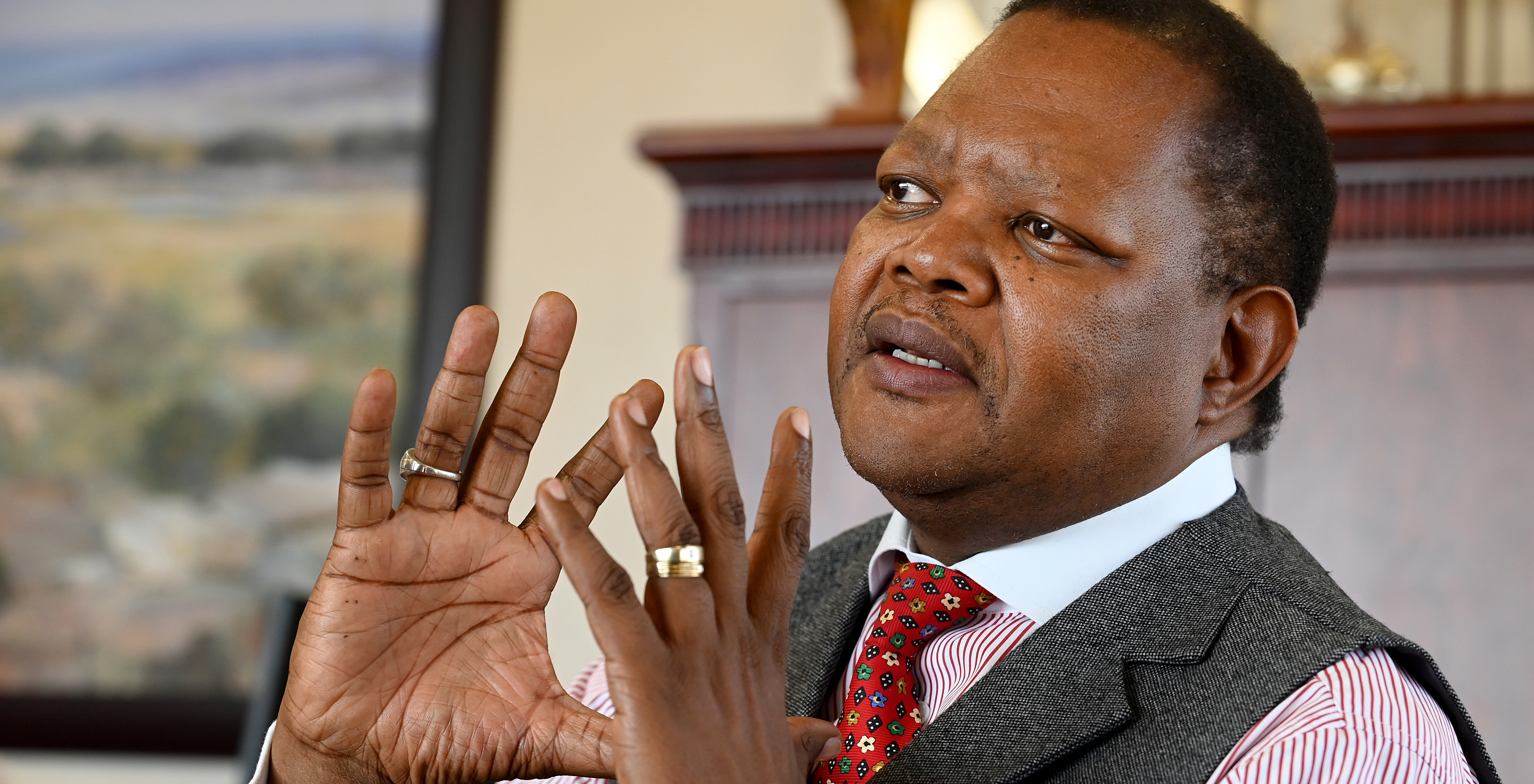 Mpho Makwana says South Africans 'must show Eskom employees some love'. (Photo: Leon Sadiki)
Mpho Makwana says South Africans 'must show Eskom employees some love'. (Photo: Leon Sadiki)
In the audit, when it gets published at the AGM in September or thereabouts, the questions will have to be answered about what else is being done about that and what else still needs to be done. So, internally, there’s an audited risk focus on restoring the integrity of the control environment to ensure we drive the necessary connecting of dots with the State Capture Task Team and then also in the committee that I chair, the Governance and Strategy Committee. (The chairperson adds that De Ruyter claimed to be a whistle-blower but did not properly investigate the allegations he made.)
On my first visit to Kusile, we sat around the table, and I asked them how it was going. How’s it going with your families?... I saw two men cry.
(Bloomberg reported this week that Eskom had cancelled R11-billion in coal supply and construction contracts at Eskom. Citing answers by President Cyril Ramaphosa in Parliament, it said R3.7-billion in coal supply agreements had been declared invalid. Eskom spends about R77-billion on coal annually)
Q: You announced an investigation into the allegations made in De Ruyter’s book and the possible use of confidential information. Where is that?
A: The company secretary is driving that again with another law firm looking at all these angles, involving interviews with board members regarding what we observed and know.
What about power station repairs?
Q: Koeberg and Kusile repairs contain the seeds of so much of our energy stability (Koeberg’s Unit 1 and Kusile Units 1, 2 and 3 are responsible for 3,300MW of power, and their effective repair can limit load shedding). Are the repairs still on track for later this year, as set out in the winter system briefing, or will they be delayed?
A: Much of our planning depends on that, so we still rely on it. Parallel to this is the critical application with the nuclear regulator for renewing the long-term Koeberg licence, so all these things will come to fruition. So far, there are no indications that they will falter, and so, as far as Koeberg is concerned, all is on track. As far as Kusile is concerned, all is on the way, and the team there is doing a good job stabilising Kusile, and we’ve been getting a lot of support from the private sector.
[On Sunday, 23 July, Electricity Minister Kgosientsho Ramokgopa said the Koeberg unit repair is 71 days behind schedule. He referred this to the board.]
Q: Electricity Minister Kgosientsho Ramokgopa said last week that boiler tube leaks are the albatross around the neck of Eskom. In the past this has often been caused by coal swaps for inferior coal. Is this still the case?
A: He’s right that boiler tube leaks are the biggest challenge in keeping lower load shedding levels. One of the things that attracted us to appointing (head of generation) Bheki Nxumalo is that he’s been running Rotek, and the thing he’s been able to restore there is local manufacturing capability. So, we don’t have to go to Germany or any other country. Germiston is where we can find new boiler tubes and components that go into boilers. And so, we’re just in the teething process of proactively being able to fix those. The boiler tube leaks are not purely coal-related; it’s more about the age of the power stations.
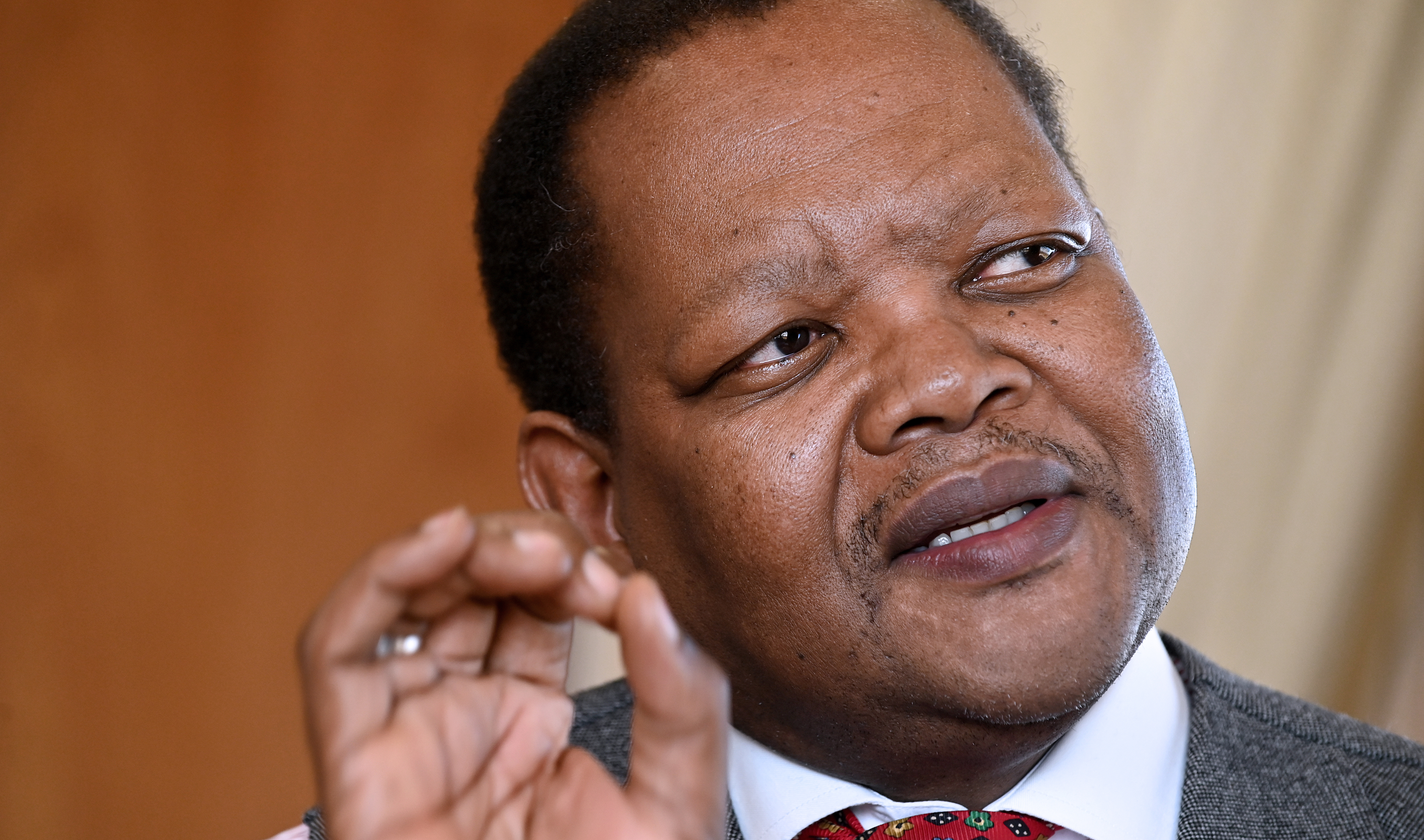 Eskom chair Mpho Makwana says the process of appointing a group chief executive is in its most delicate phase. (Photo: Leon Sadiki)
Eskom chair Mpho Makwana says the process of appointing a group chief executive is in its most delicate phase. (Photo: Leon Sadiki)
Q: Is there anything else you would like to add?
A: South Africans must show Eskom employees some love. Each of us has a relative or cousin who works somewhere in Eskom. On my first visit to Kusile, we sat around the table, and I asked them how it was going. How’s it going with your families? An innocent question like that sparked huge emotions. I saw two men cry. The tears started rolling down their cheeks because they later said: ‘You know, our children are bullied at school because their fathers work for Eskom.’ He says: ‘You know, our wives are no longer welcome in social clubs’. In the past, if you were a power station manager or a senior executive at a power station, you were almost as important as the town’s mayor. You were a valuable member of the community. Now you’re the guy that’s leaving us in darkness.
Part of lifting morale was assuring our staff that, as the board will make sure, we don’t always generalise in a way that; when we speak about corruption, it is not in a way that suggests that every Eskom person is corrupt, every Eskom person is a thief. DM




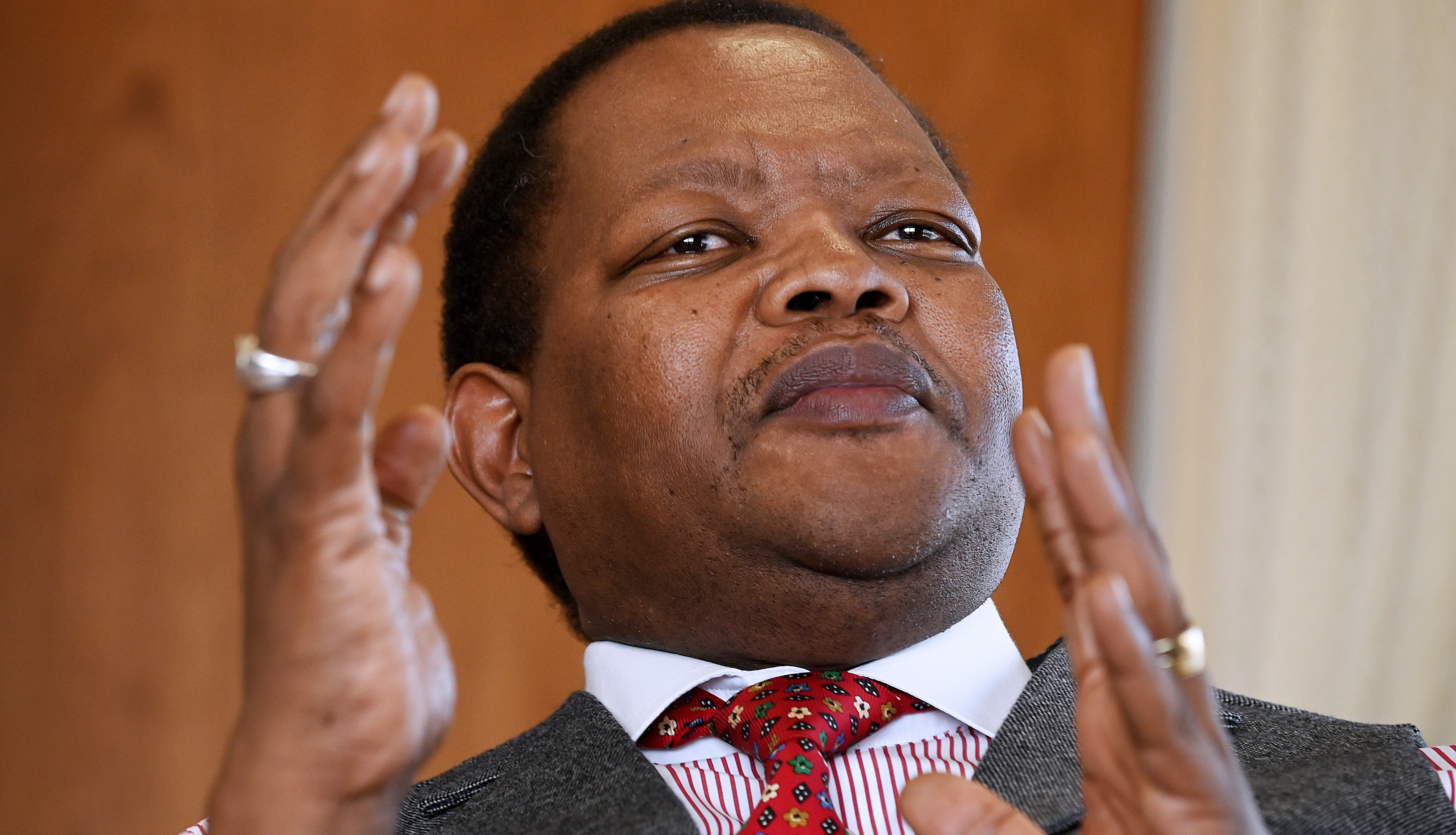 Eskom chair Mpho Makwana says the process of appointing a group chief executive is in its most delicate phase. (Photo: Leon Sadiki)
Eskom chair Mpho Makwana says the process of appointing a group chief executive is in its most delicate phase. (Photo: Leon Sadiki) 